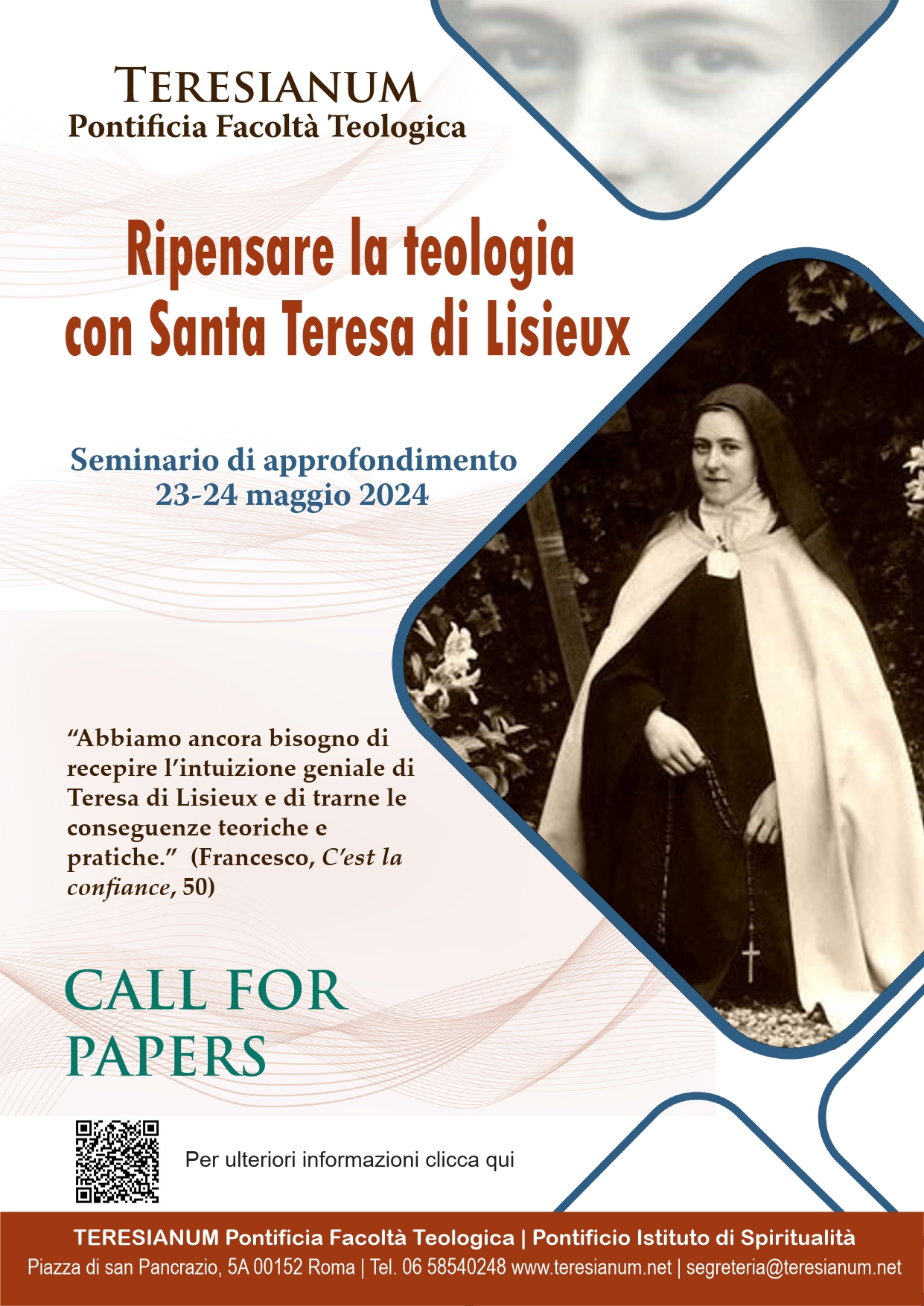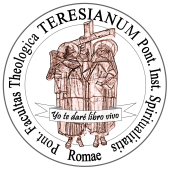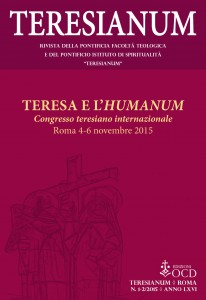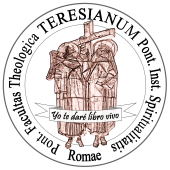23-24 maggio 2024
Nell’esortazione apostolica “C’est la confiance” papa Francesco chiama Santa Teresa di Lisieux “il Dottore della sintesi”, il cui genio “consiste nel portarci al centro, a ciò che è essenziale, a ciò che è indispensabile” (49). La sua scoperta del cuore del Vangelo – in quanto costitutivo per la vita cristiana – provoca comunque un ripensamento di tanti modi di pensare e agire, anche in ambito teologico: “Come teologi, moralisti, studiosi di spiritualità, come pastori e come credenti, ciascuno nel proprio ambito, abbiamo ancora bisogno di recepire questa intuizione geniale di Teresina e di trarne le conseguenze teoriche e pratiche, dottrinali e pastorali, personali e comunitarie. Servono audacia e libertà interiore per poterlo fare.” (50)
Raccogliendo quest’appello del Pontefice, la Pontificia Facoltà Teologica – l’Istituto di Spiritualità Teresianum invita gli studiosi di teologia e di altre discipline al Seminario di approfondimento dedicato al tema dell’apporto teologico di Santa Teresa di Gesù Bambino e del Volto Santo.
Un rinnovamento della teologia, come anche una riforma ecclesiale, sembra un’urgenza dei nostri tempi. Una teologia capace di “interpretare profeticamente il presente e a scorgere nuovi itinerari per il futuro” (Francesco, Ad theologiam promovendam, 1) ha comunque bisogno di un punto focale, ovvero il lievito. Nel passato non mancavano i teologi che scorgevano un tale contributo negli scritti di Santa Teresa di Lisieux (p.e. André Combes, Erich Przywara, Hans Urs von Balthasar). Nonostante ciò, la recezione della dottrina teresiana da parte del mondo teologico rimane piuttosto modesta. L’invito di Francesco rivolto ai “teologi, moralisti, studiosi di spiritualità” rappresenta quindi una sfida e richiede un vero lavoro di approfondimento.
L’obiettivo del seminario è quello di offrire ai ricercatori l’opportunità di discutere i risultati delle proprie ricerche. Questo comprende sia i temi storici riguardanti diverse tappe della percezione e dell’interpretazione della dottrina di Santa Teresa in teologia, come anche nuovi approcci e contesti in cui la sua dottrina potrebbe acquisire importanza.

Call for Papers
Le bozze di presentazione sul tema sopra descritto possono essere inviate via e-mail a strzyz@teresianum.net entro l’11 marzo 2024. Le bozze presentate non devono superare i 4000 caratteri e devono essere scritte in italiano, in inglese o in francese. Si prega di inviare anche un breve CV. La decisione di accettazione verrà comunicata entro il 23 marzo.
In una sezione libera è possibile presentare i propri progetti di ricerca (p.e. dottorato) dedicati a Santa Teresa di Lisieux che non rientrano nell’area tematica sopra descritta. Anche le bozze di presentazione per questa sezione non devono superare i 4000 caratteri. Per ogni contributo accettato sul tema, saranno riservati 45 minuti del seminario (30 minuti di presentazione / 15 minuti di discussione). Nella sezione libera sono previsti 20 minuti per ogni partecipante (10 minuti di presentazione / 10 minuti di discussione).
La lingua di scambio durante il seminario è l’italiano. Tuttavia, è possibile fare la propria presentazione in inglese o in francese.
Per ulteriori informazioni: strzyz@teresianum.net
Équipe di preparazione:
Prof. Emilio Martinez
Prof. Lukasz Strzyz-Steinert
Dott.ssa Antonella Piccirilli
Research Seminar: Rethinking theology with St. Thérèse of Lisieux
May 23rd-24th, 2024
In the apostolic exhortation “C’est la confiance” Pope Francis calls St. Thérèse of Lisieux “the Doctor of synthesis”, whose genius consists “in leading us to what is central, essential and indispensable” (49). However, her discovery of the heart of the Gospel – as constitutive for Christian life – provokes a rethinking of many ways of thinking and acting, not least in the theological sphere: “As theologians, moralists and spiritual writers, as pastors and as believers, wherever we find ourselves, we need constantly to appropriate this insight of Thérèse and to draw from it consequences both theoretical and practical, doctrinal and pastoral, personal and communal. We need boldness and interior freedom to do so.” (50)
Welcoming this appeal by the Pope, the Pontifical Theological Faculty – the Teresianum Institute of Spirituality invites scholars of theology and other disciplines to a seminar dedicated to the theological input of St. Thérèse of the Child Jesus and the Holy Face.
A renewal of theology, as well as an ecclesial reform, appears to be an urgency of our times. However, a theology capable of “prophetically interpreting the present and discerning new paths for the future” (Francis, Ad theologiam promovendam, 1) needs a focal point, as well as a kind of leaven. In the past, there was no shortage of theologians who saw such a contribution in the writings of St. Thérèse of Lisieux (e.g. André Combes, Erich Przywara, Hans Urs von Balthasar). Despite this, the reception of Thérèse’s doctrine by the theological world remains rather modest. Francis’ invitation addressed to “theologians, moralists and spiritual writers” is thus a challenge and calls for a genuine effort of in-depth study.
The aim of the seminar is to offer scholars the opportunity to discuss the results of their own research. This includes both historical topics concerning different stages of the perception and interpretation of St. Thérèse’s doctrine in theology, as well as new approaches and contexts in which her doctrine might gain importance.


The draft presentations on the topic described above can be sent by e-mail to strzyz@teresianum.net by March 11th 2024. The drafts submitted must not exceed 4000 characters and must be written either in Italian, English, or French. The researchers are kindly requested to send, as well, a brief CV. The acceptance results will be communicated by March 23rd. In the free section it will be possible to present one’s own research projects (e.g. doctorate) dedicated to Saint Thérèse of Lisieux which do not fall within the thematic area described above. Draft submissions for this section should also not exceed 4000 characters.
45 minutes of the Seminar will be reserved (30 minutes of presentation/ 15 minutes of discussion) for each accepted contribution. In the free section, 20 minutes are foreseen for each participant (10 minutes of presentation/ 10 minutes of discussion).
The language utilized during the Seminar will be Italian. However, presentations may also be made in English or in French.
For further information: strzyz@teresianum.net
Preparation Team:
Prof. Emilio Martinez
Prof. Lukasz Strzyz-Steinert
Dr. Antonella Piccirilli


